Substance abuse is a widespread issue that unfortunately affects millions of individuals and families worldwide, contributing to severe health problems, strained relationships, and economic burdens. The impact extends beyond the individual, influencing entire communities and burdening public health resources. Substance abuse often goes unnoticed until it becomes severe, making it crucial to recognize the early signs. Early detection allows for timely intervention, which can prevent the escalation of addiction, reduce long-term health risks, and improve the chances of recovery.
This blog will help you identify the signs of substance abuse, understand the importance of early intervention, and explore the available options for seeking help.
What is Substance Abuse?
Substance abuse refers to the harmful or hazardous use of substances like alcohol, drugs, or prescription medications, leading to significant physical, mental, and social consequences. It often involves using these substances in a way that disrupts daily life, impairs judgment, and damages relationships, ultimately leading to dependence or addiction.
Causes of Substance Abuse
Substance abuse often arises from a complex interplay of factors, each contributing to a person's vulnerability to misuse alcohol, drugs, or medications. One of the most significant causes is stress, which can overwhelm an individual’s ability to cope with daily challenges. Whether it’s financial difficulties, work-related pressures, or personal issues, the desire to escape or numb emotional pain can lead many to turn to substances as a form of self-medication. This temporary relief, however, often spirals into dependency as the underlying issues remain unaddressed.
 Mental health struggles also play a crucial role in the onset of substance abuse. Conditions like depression, anxiety, and trauma can leave individuals feeling isolated and hopeless, making them more susceptible to seeking comfort in substances. The connection between mental health and substance abuse is powerful, with many people using drugs or alcohol to dull the symptoms of their mental health conditions. Unfortunately, this often exacerbates the problem, creating a vicious cycle where substance use worsens mental health issues, leading to increased reliance on the substance.
Mental health struggles also play a crucial role in the onset of substance abuse. Conditions like depression, anxiety, and trauma can leave individuals feeling isolated and hopeless, making them more susceptible to seeking comfort in substances. The connection between mental health and substance abuse is powerful, with many people using drugs or alcohol to dull the symptoms of their mental health conditions. Unfortunately, this often exacerbates the problem, creating a vicious cycle where substance use worsens mental health issues, leading to increased reliance on the substance.
Environmental factors, including peer pressure and exposure to substance use at an early age, can also influence a person’s likelihood of abusing substances. Growing up in an environment where drug or alcohol use is normalized can desensitize individuals to the risks and encourage experimentation. Additionally, the need to fit in with certain social groups or cope with social anxiety can lead to substance use as a means of gaining acceptance or alleviating social discomfort. Over time, what begins as social or recreational use can evolve into a habit that becomes difficult to control.
Genetics and family history are other critical factors that can predispose individuals to substance abuse. Studies have shown that those with a family history of addiction are more likely to struggle with substance use disorders themselves. This genetic predisposition, combined with environmental influences, can significantly increase the risk of developing an addiction. However, it’s important to remember that while genetics can increase vulnerability, they do not determine destiny; awareness and early intervention can still make a significant difference.
Understanding the causes of substance abuse is essential for fostering compassion and empathy toward those struggling with addiction. It’s not merely a matter of willpower; numerous external and internal factors contribute to the development of substance use disorders. By recognizing these underlying causes, we can better support those in need and guide them toward recovery.
Recognizing Signs of Substance Abuse
Recognizing the signs of substance abuse is crucial for early intervention, support, and treatment. Substance abuse can manifest through various physical, behavioral, and psychological indicators. Understanding these signs can help identify when someone may need help and support. Here’s a closer look at these categories:
Physical Signs
Substance abuse often leads to noticeable changes in a person’s appearance and health. Some common physical signs include sudden weight loss or gain, bloodshot eyes, dilated or constricted pupils, and unusual body odors. You might notice poor hygiene, unusual sleep patterns (like excessive sleepiness or insomnia), or unexplained bruises or injuries. In some cases, individuals may exhibit tremors, slurred speech, or a lack of coordination, depending on the substance involved. These physical symptoms can be subtle at first but become more pronounced as the abuse continues.
Behavioral Signs
Behavioral changes are often the most telling indicators of substance abuse. A person struggling with addiction may start neglecting responsibilities at work, school, or home. They might frequently miss obligations, show a sudden drop in performance, or withdraw from activities they once enjoyed. Secretive behavior is common, such as hiding drug paraphernalia or lying about their whereabouts. You might also observe mood swings, aggression, or erratic behavior. Financial issues can also be signs, like frequently borrowing money or unexplained spending. Additionally, social circles may change, with the person spending more time with individuals who are likely involved in similar substance use.
Psychological Signs
Psychological signs of substance abuse can range from anxiety and depression to paranoia and hallucinations. Mood instability is typical, with the person swinging from euphoria to deep depression or irritability. They may become more isolated, withdrawn, or lose interest in activities they used to enjoy. You might also notice heightened sensitivity to stress, increased defensiveness, or denial when confronted about substance use. Over time, these psychological changes can evolve into more severe mental health issues, making it harder for the person to recognize the need for help.
Recognizing these signs is an essential step in offering support to those who might be struggling with substance abuse. Knowing these physical, behavioral, and psychological indicators, you can help guide someone toward the resources and assistance they need before the situation escalates further. Early intervention can make a significant difference in recovery and overall well-being.
The Importance of Early Intervention
Early intervention in cases of substance abuse is critical because it can prevent the situation from worsening, reduce long-term health risks, and increase the chances of successful recovery. The sooner a person receives help, the better the outcomes tend to be, as they can avoid some of the severe consequences that prolonged substance use can cause, such as chronic health issues and damaged relationships. Addressing substance abuse early also allows for a broader range of treatment options and less intensive interventions, making the recovery process more manageable.
Approaching a loved one about suspected substance abuse can be challenging, but it’s essential to do so with care and compassion.
- Choose a calm and private setting where you can talk without interruptions.
- Express your concerns without judgment, focusing on your observed behaviors rather than making accusations.
- Using "I" statements, such as, "I’ve noticed you’ve been more withdrawn lately," helps avoid making the person feel defensive.
- Listen actively and offer your support, letting them know you are there to help them find resources or seek professional assistance.
- Be patient; the person may not be ready to acknowledge the problem right away.
- Offering consistent support and understanding can make a significant difference in helping them take the first steps toward recovery.
Seeking Professional Help for Substance Abuse
It’s time to consider professional help when substance use begins to interfere with daily responsibilities, relationships, or health. If someone has tried to cut back or quit on their own and failed, or if they’re experiencing withdrawal symptoms, these are clear signs that professional intervention is necessary. Additionally, if substance use has escalated to the point where it’s putting the person or others at risk, such as driving under the influence or engaging in risky behaviors, seeking professional help becomes urgent.
Several types of professional care are available, tailored to different levels of need. Counseling and therapy are often the first steps, providing a space for individuals to explore the underlying causes of their substance use. Cognitive-behavioral therapy (CBT) and motivational interviewing are commonly used approaches that help people develop coping strategies, change destructive behaviors, and build motivation for recovery. These sessions can be done individually or as part of a group, depending on the person’s comfort level and needs.
For more intensive cases, rehabilitation programs might be necessary. Inpatient rehab provides a structured environment where individuals can focus entirely on recovery, with 24/7 medical support and access to therapy. Outpatient rehab programs, which allow individuals to live at home while attending treatment during the day, offer flexibility for those with work or family obligations. Both types of rehab often include detoxification, which is medically supervised and designed to manage withdrawal symptoms safely.
Support groups like Alcoholics Anonymous (AA) or Narcotics Anonymous (NA) provide ongoing peer support, which is crucial for long-term recovery. These groups are led by others in recovery who share their experiences, offering a sense of community and accountability. Support groups are often combined with other treatments and can be a valuable resource even after formal treatment ends.

Each person’s journey to recovery is unique, and finding the right combination of care is key. Professional help offers a comprehensive approach, addressing not just the substance use itself but also the emotional, psychological, and social factors that contribute to it. The sooner one seeks help, the better the chances of overcoming addiction and reclaiming a healthy, balanced life.
September is National Recovery Month
September is National Recovery Month, a time to celebrate the strength and resilience of individuals on their journey to recovery from substance use and mental health disorders.
This year’s tagline, “Every Person, Every Family, Every Community,” underscores the importance of a collective effort in promoting awareness, understanding, and support for those in recovery. It reminds us that recovery is not just a personal journey but a shared responsibility that touches us all. By fostering a culture of compassion, education, and connection, we can create an environment where recovery is celebrated and everyone feels empowered to reclaim their lives.
Let's celebrate people on their path to recovery and remind them they're not alone!
Twin Branch Wellness & Recovery for Women
If you are struggling with substance abuse, Twin Branch Wellness & Recovery for Women wants to help.
We focus on women-specific curricula and therapies to overcome addiction and chemical dependencies. Our women-specific modalities help identify possible co-occurring mental health disorders. Substance use disorder and mental illness often feed off of each other in an unrelenting cycle. At Twin Branch, you will find many options based on research and evidence-based practices.
After completing any need for detoxification, admission to Twin Branch begins as a partnership with each woman and her highly trained medical and clinical care teams. Thorough and ongoing assessments help create individualized treatment plans and continuing care plans right for you.
There is more than one path to recovery. Our compassionate team works to help you create your individualized treatment plan to get to the root of your addiction so that growth can be ongoing. We designed our residential treatment program for women ready to change their lives. The program incorporates attainable and measurable goals that reflect the characteristics required to live a positive and productive life of sobriety.
Are you ready to start a new chapter? Are you ready to live a healthier and more fulfilling life? If you or someone you love are struggling with substance abuse, Twin Branch Wellness & Recovery for Women is here to help you begin your recovery journey. It is never too late or too soon to choose wellness and develop the tools necessary to manage life's demands.











